[ad_1]
Struggling with your mental health, constantly feeling stressed, and being in chronic pain is a very difficult situation to be in. Something that can add to the anxiety is feeling as though you’re ‘inconveniencing’ your loved ones. Things that can help you in the fight against these issues are serious lifestyle changes, regular exercise, a healthy diet, proper sleep, seeing medical professionals, going to therapy, spending time in nature, meditation, and fostering authentic relationships.
However, if you don’t commit to making these positive changes, there are bound to be moments when even the most supportive and patient people around you can snap. Empathy burnout is a real thing. An anonymous person, who has been struggling with serious issues for years, turned to the Mumsnet online community for advice after her boyfriend called her out for “dragging him down” all the time and being chronically unhappy. She felt like she had to instantly overhaul her life. Scroll down for the full story and the tips the internet gave the author.
It can feel overwhelming when you’re dealing with multiple issues, from chronic stress and pain to mental health problems
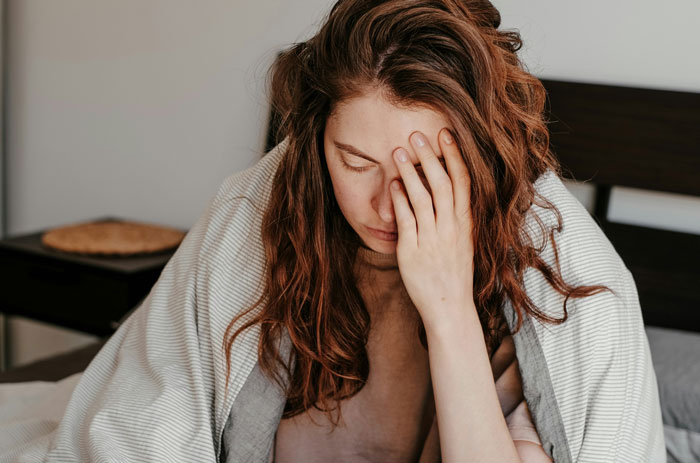
Image credits: Valeriia Miller / Unsplash (not the actual photo)
A woman turned to the net for advice after her boyfriend called her out for not making changes in her life to be happier and healthier
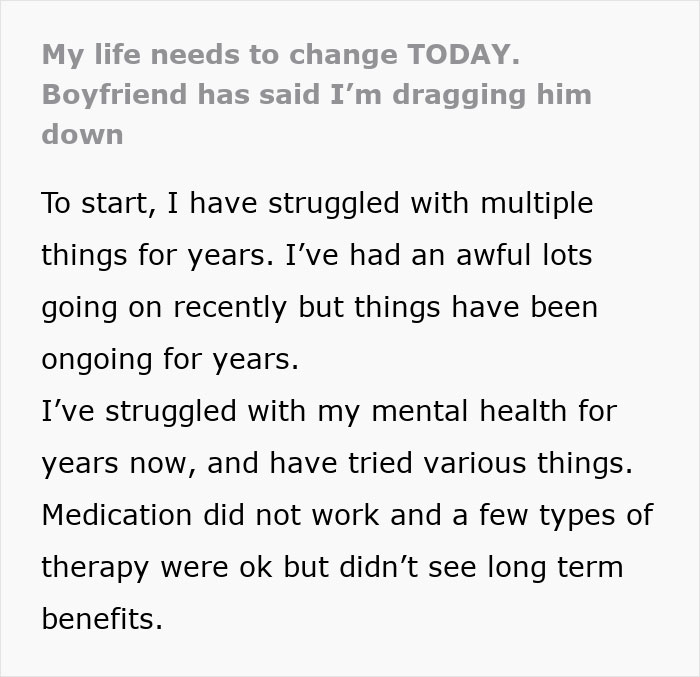
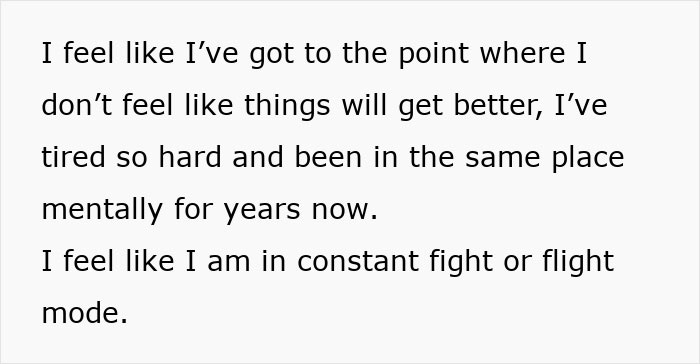
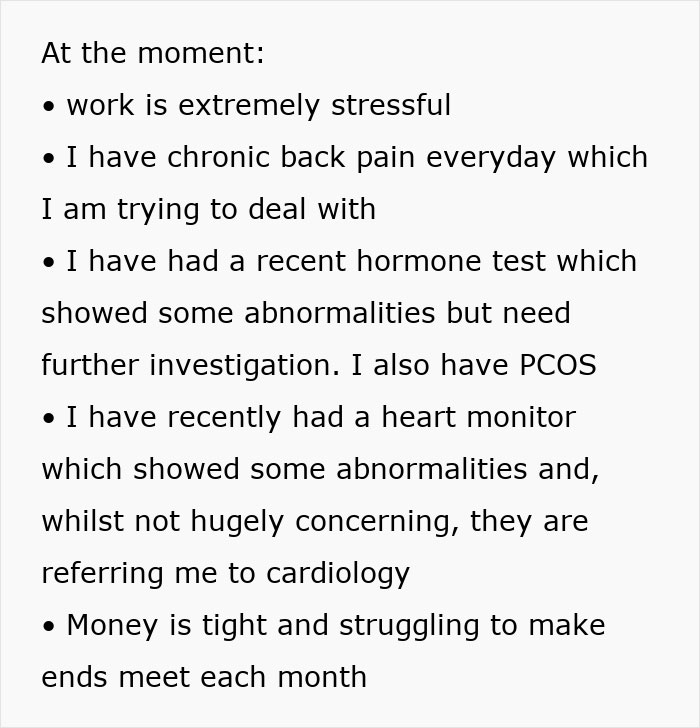

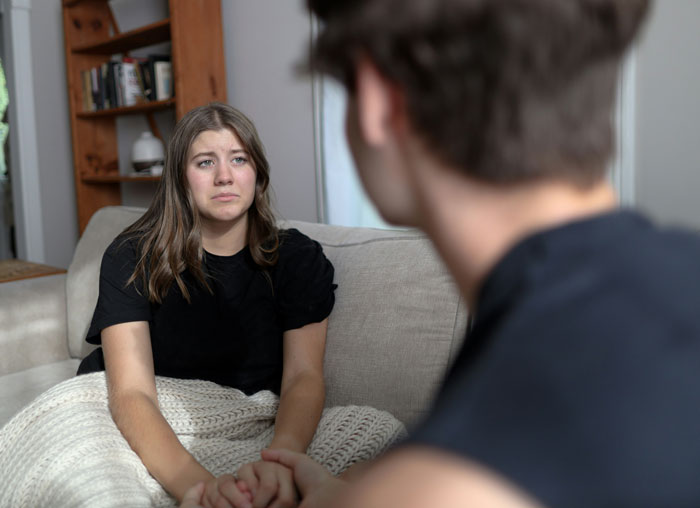
Image credits: Blake Cheek / Unsplash (not the actual photo)
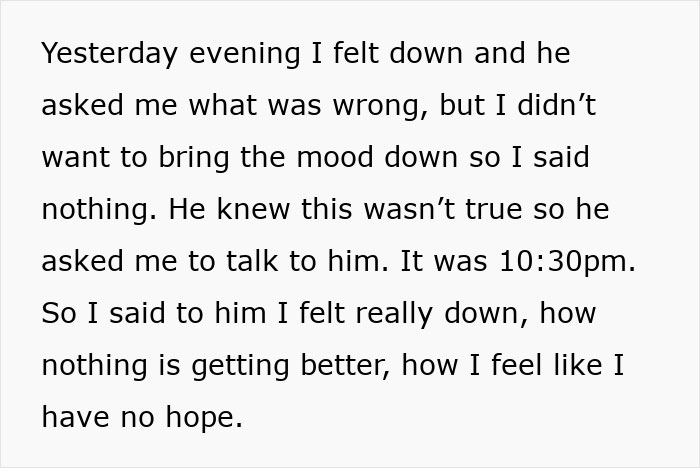
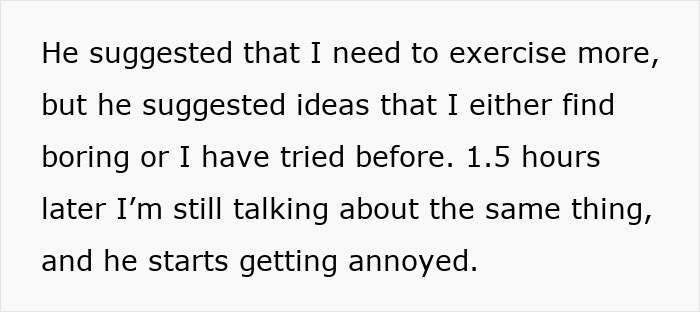
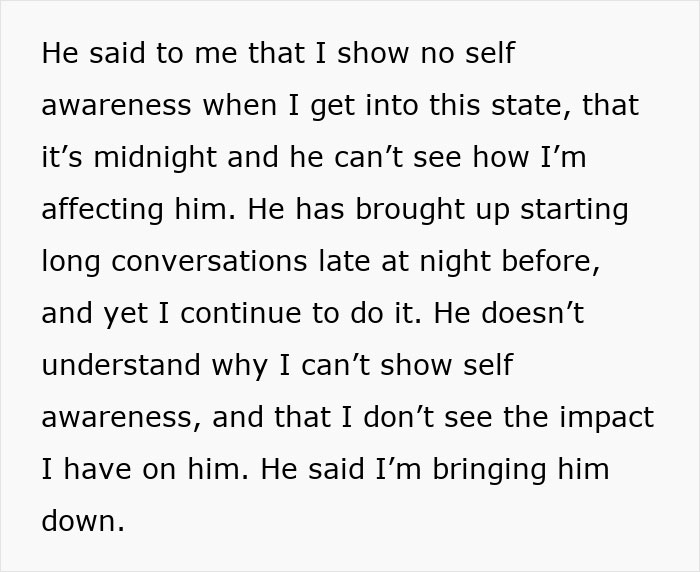
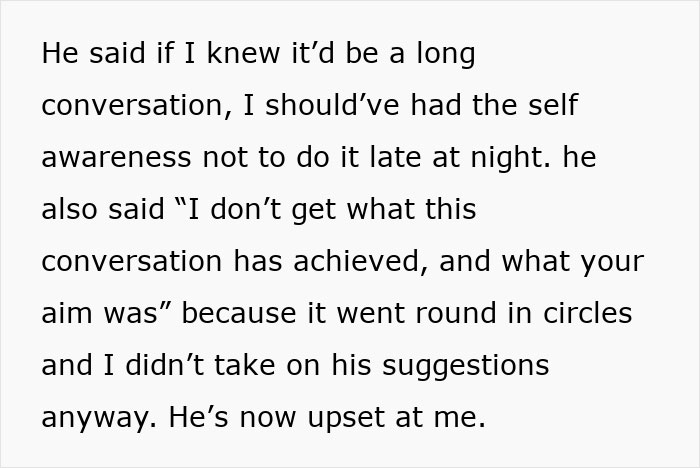
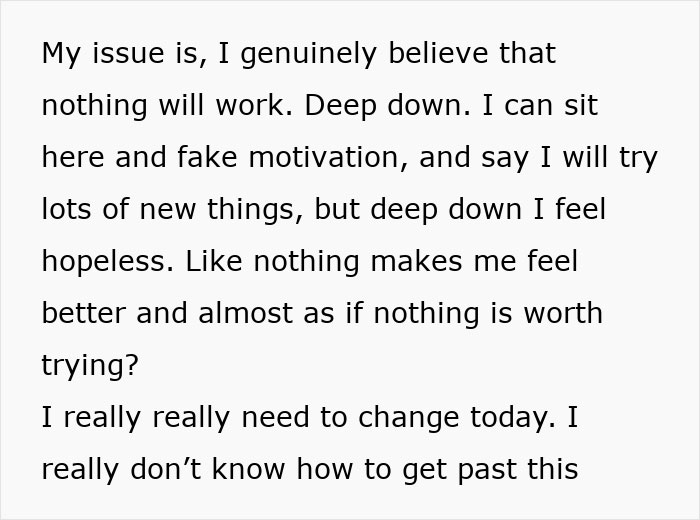
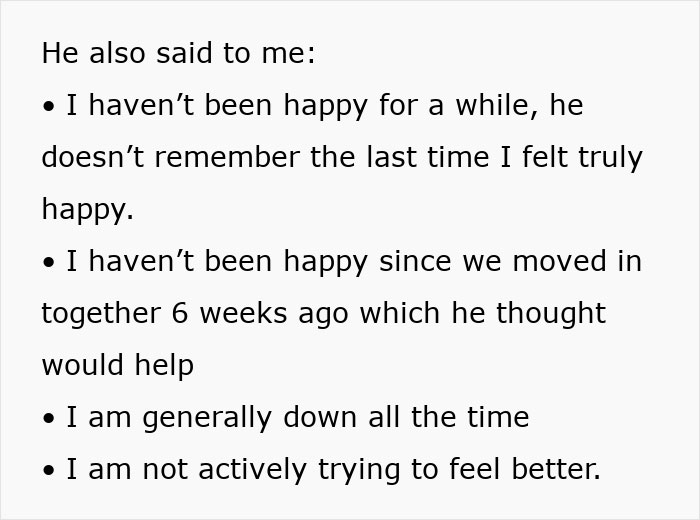
Image credits: Cooky1998
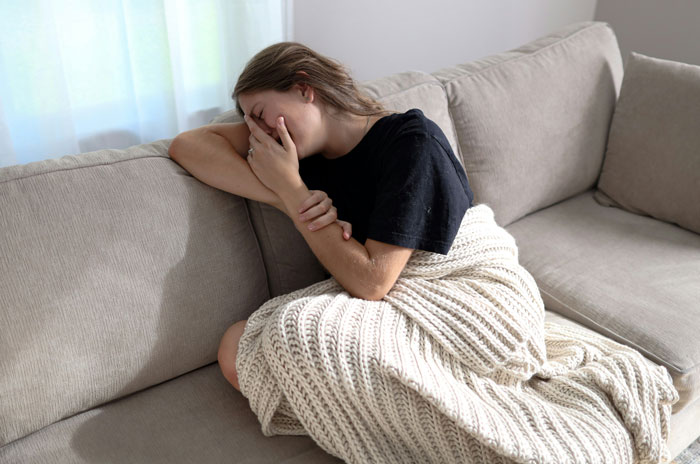
Image credits: Blake Cheek / Unsplash (not the actual photo)
Regular physical activity reduces the risk of depression, is good for your health, and improves your self-esteem
To be very blunt, everyone needs to get in the habit of exercising on a regular basis. What you do specifically—whether that’s jogging, yoga, tennis, hiking, pilates, basketball, weightlifting, etc.—isn’t as important as the fact that you move in a way that’s enjoyable to you. You need to listen to your body. What works for one person might not work for you due to your build, traumas, and lifestyle.
The advice is very similar for healthy adults, seniors, as well as individuals with chronic conditions or disabilities. The CDC recommends that men and women between the ages of 18 and 64 do at least 150 minutes of moderate-intensity activity per week. Brisk walking fits the bill here. On top of that, you should have at least 2 days every week where you focus on activities that strengthen your muscles.
Adults who are 65 years and older should do the same but also spend some additional time on activities that improve their balance: for instance, standing on one foot.
Meanwhile, the CDC urges adults with chronic conditions or disabilities to have similar physical health goals. They should get at least 150 minutes of moderate-intensity aerobic physical activity a week, for instance, moving for 30 minutes 5 days a week. They should also spend 2 days per week strengthening their major muscle groups.
Of course, if you’re in chronic pain, you should speak to your doctor about what types of exercise might be best for you. Broadly speaking, getting any movement is better than getting none.
Exercise, when done habitually, improves many aspects of your life. The NHS explains that people who do regular physical activity have a lower risk of depression, dementia, type 2 diabetes, bowel cancer, breast cancer, osteoarthritis, hip fracture, and early death.
Furthermore, exercise tends to boost the quality of your sleep and energy, reduce your risk of stress, and improve your self-esteem and your mood.
Depressive disorder is a common problem that can require a complex strategy to tackle, from therapy to lifestyle changes
Depression, which is also known as depressive disorder, is a very common mental disorder, affecting 3.8% of all people around the globe and 5% of all adults, as per the World Health Organization (WHO).
In the United States, 21 million adults have had at least one major depressive episode (i.e., at least two weeks of a depressed mood), the National Institute of Mental Health reports. According to the Depression and Bipolar Support Alliance, depressive episodes are the most common among young adults aged 18 to 25.
Broadly speaking, the disorder is characterized by a depressed mood and losing pleasure or interest in activities for long periods of time.
Depressed people can feel empty, sad, irritable, unable to focus, and hopeless about the future. The disorder can also contribute to low self-worth, changes in appetite, and poor sleep. Other symptoms include feeling exhausted and as though you have little energy.
If left untreated, depression can affect important aspects of your life, from your relationships to your performance at work or school. The WHO notes that depressive disorder can affect anyone, but the most vulnerable are people who have experienced stressful events, severe losses, or abuse. Furthermore, the WHO explains that women are 50% more likely to develop depression than men.
The majority of people living in low- and middle-income countries receive no treatment for their mental disorders due to a variety of reasons, from social stigma and a lack of trained healthcare providers to poor investments in mental health care as a whole.
Certain things are non-negotiable if you want to live a happy, healthy, and fulfilling life. Things like getting regular exercise, eating well, getting enough sleep, and investing in positive relationships.
Human beings are social animals: we need movement and relationships to feel fulfilled and to become more resilient. If you cut yourself off from exercise and isolate yourself socially, it will only make any issues you have worse.
Here’s the impartial advice some internet users shared with the author of the viral story

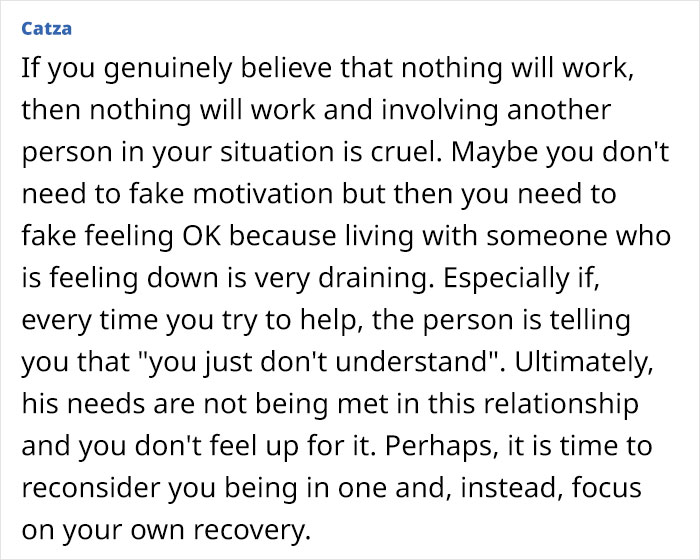
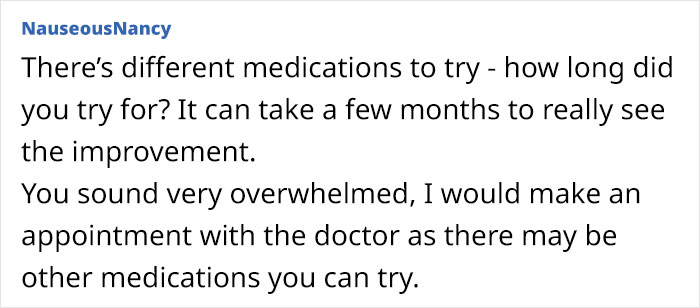
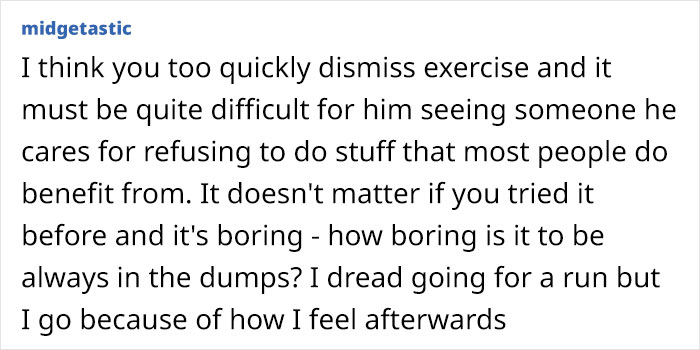
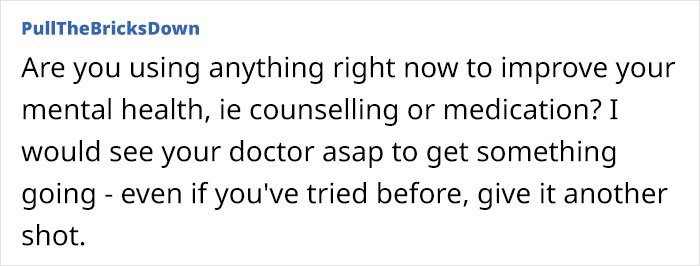


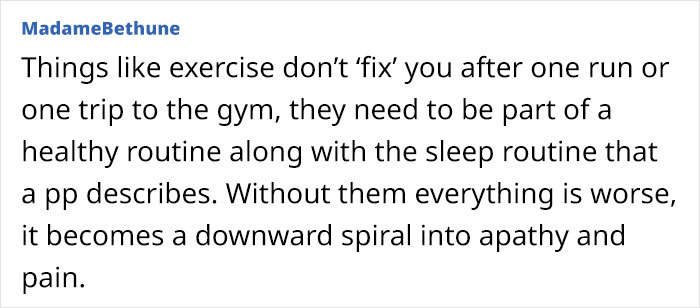





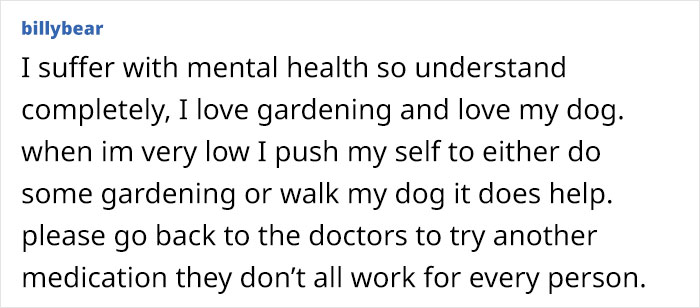
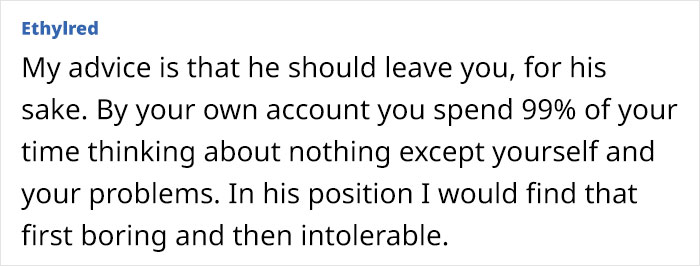

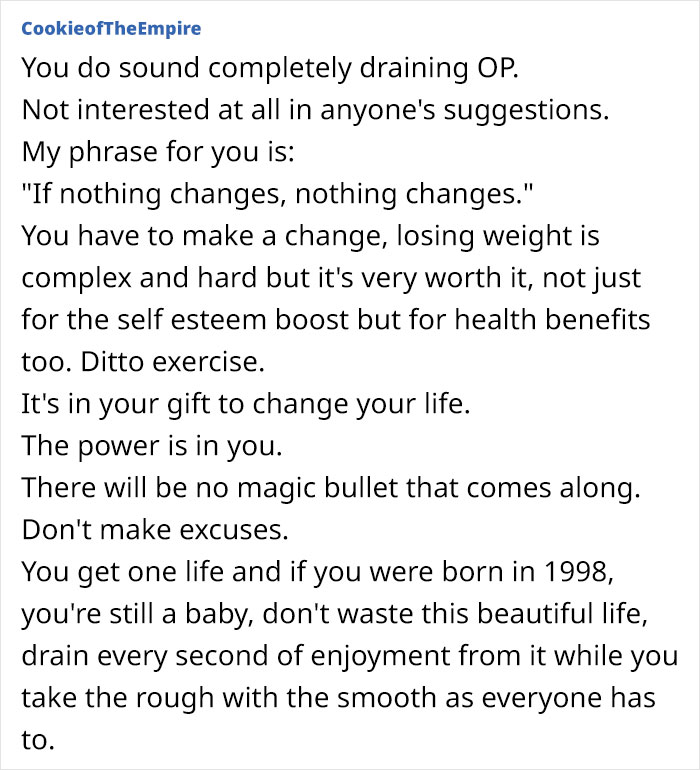
The post Boyfriend Accuses Partner In Chronic Pain Of Bringing Him Down, She Asks For Advice first appeared on Bored Panda.
[ad_2]
Source link
























